News
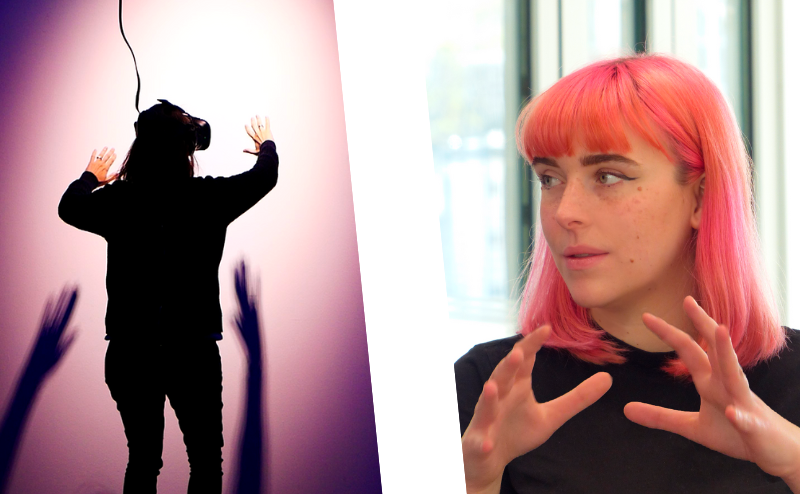
Stella Jacob, Artist, VR game designer and metaverse moderation specialist
Stella Jacob worked for 5 years as Communications Project Manager at Diversion cinema, before returning to her studies with the Mastère Spécialisé Designer d'expérience interactive et ludique - Cnam-Enjmin / GOBELINS Paris. Graduating in 2021, she is now a VR Artist & Game Designer. She also lectures on the theme of metaverse moderation, the subject of her professional thesis.
Can you tell us a little about your career since graduating from your Specialized Master's degree in Interactive and Game Experience Design?
After graduating in science, I decided to study art history. I was very interested in audiovisuals and the creative possibilities linked to "new media".
At the end of my studies, I started working with Diversion cinema, an events agency specializing in the broadcasting and distribution of virtual reality. Diversion cinema's main objective is to showcase this new medium. I was lucky enough to be able to take part in theemergence of virtual reality among the general public, and to witness its evolution year after year, thanks in particular to the festivals (Venice VR, Cannes XR, Idfa DocLab) for which Diversion cinema provided the technical installation.
All this made me want to create something of my own!
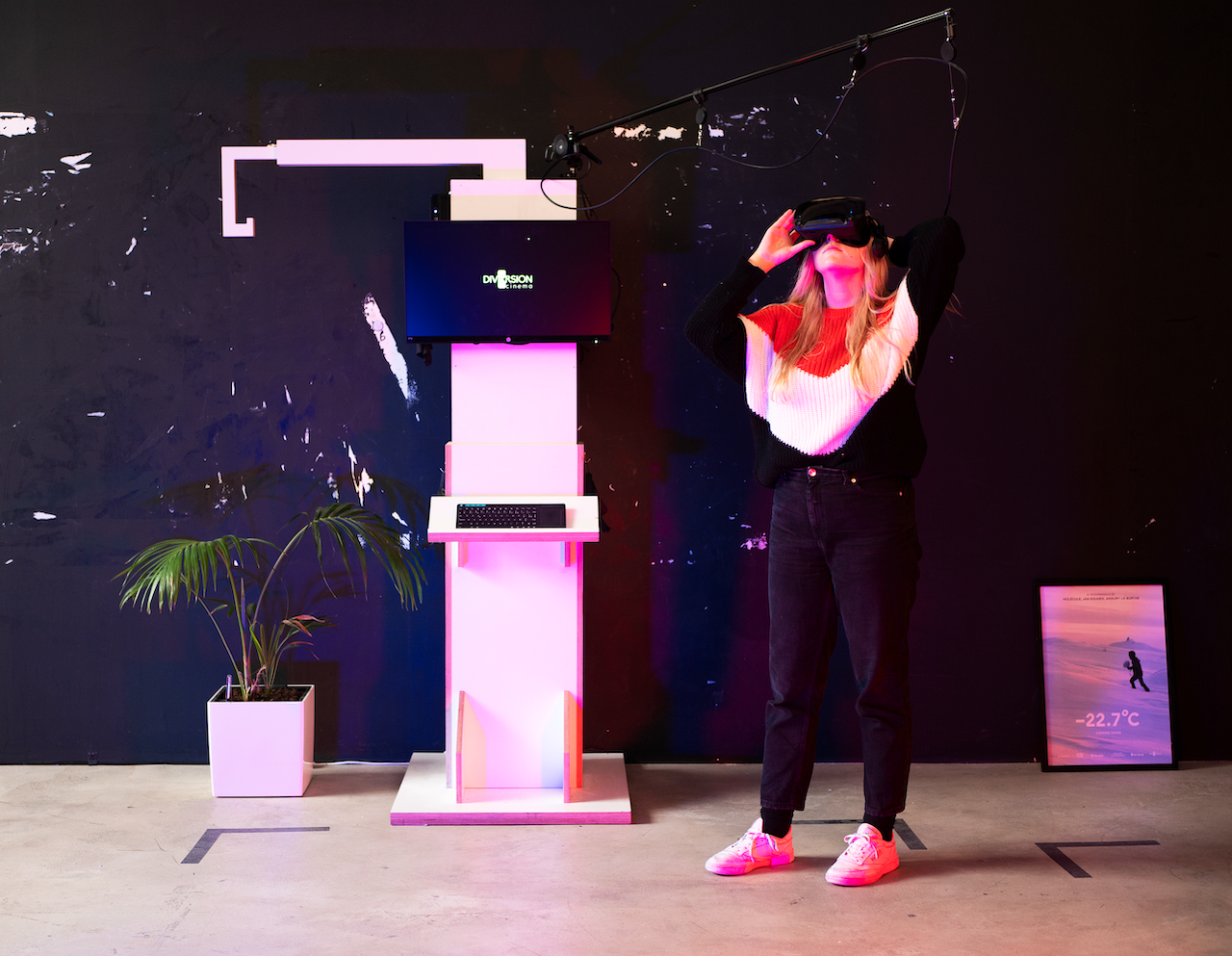
Diversioncinema
You're currently an independent artist and game designer. What does your job involve?
It's an activity that I still find hard to describe precisely. It gives me a great deal of freedom: I can work on projects independently, or put my skills at the service of studios.
Being a game designer means designing games: creating interaction systems and game mechanics. I work on concepts, ideas and moodboards, making sure that narrative and game design work well together. All this then becomes flowcharts and gameplay loops, but I'm not a " technical game designer ", as these more technical profiles tend to work more with code.
The term " game designer " covers a very broad reality, and I try to find my way between design and manufacturing while retaining my artistic approach.
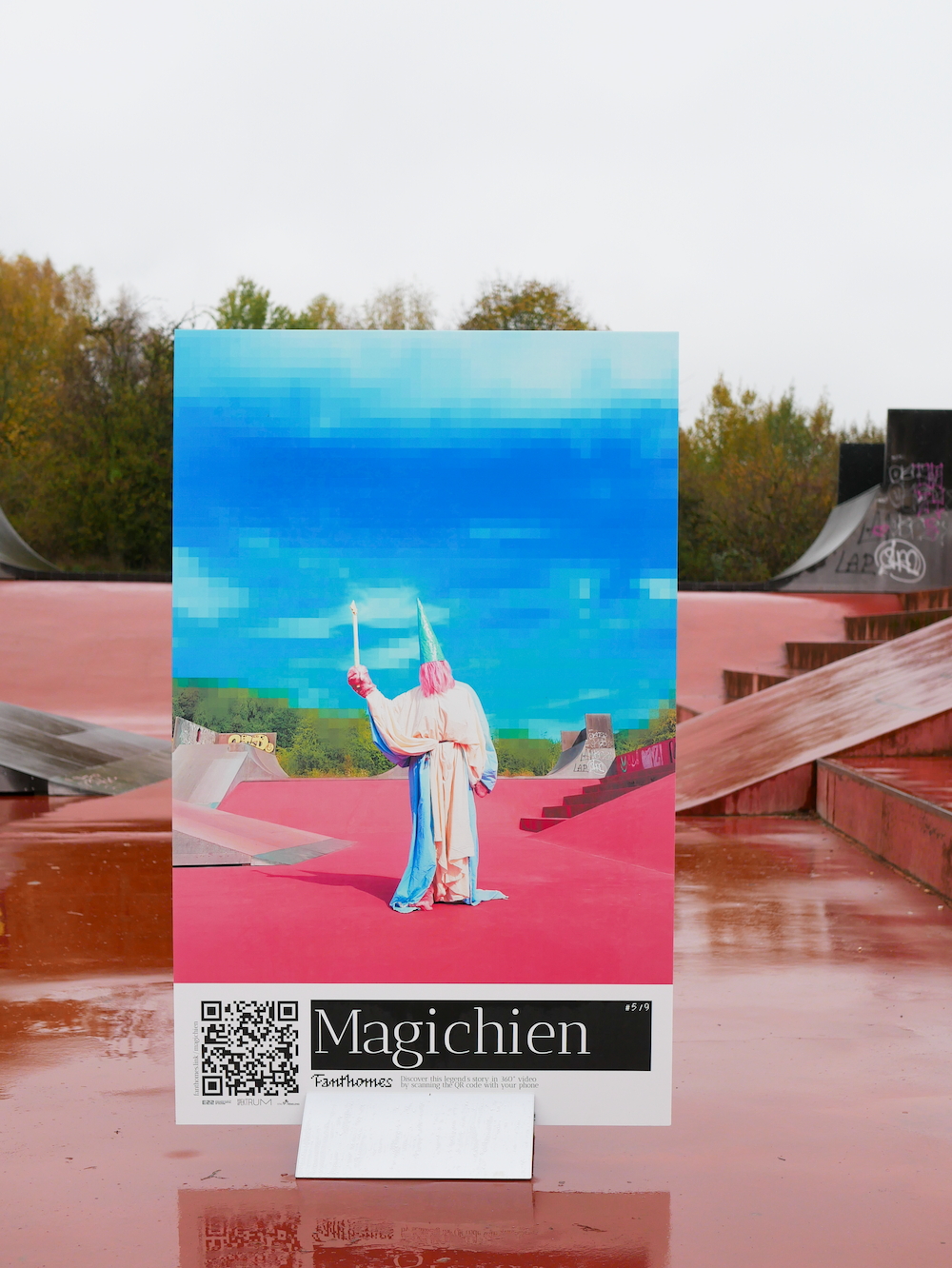
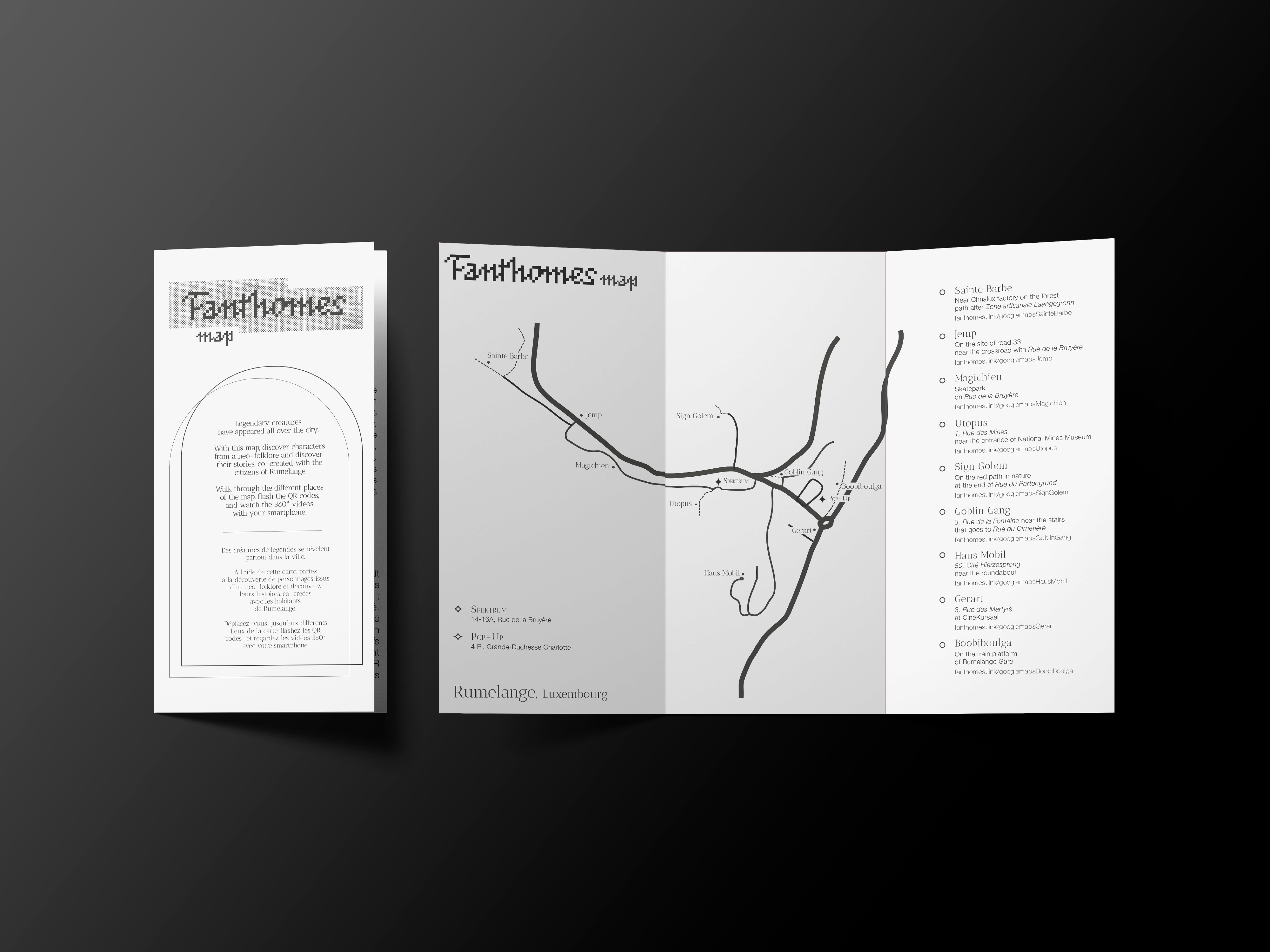
Fanthomas" project
You're currently working on three projects: "Where Do Dead Malls Go?", "Commun-" and "Fanthomes" - can you tell us more about them?
"Fanthomes" is the result of a residency at Spektrum, a creative space in the town of Rumelange, in southern Luxembourg. The aim was to make 360° film technology accessible to all, and to produce a co-creation on the theme of shared narratives and neo-legends.
This quasi-finalized project was previewed in November 2022 at the official opening of Spektrum, alongside works by artists such as Lauren Moffatt, Jan Kounen, Charles Ayats (also a GOBELINS graduate) and Laura Mannelli.
"Commun-, is a VR project that stems directly from my professional thesis. I'm still in the very early stages of the project, and was able to take part in the Fisheye immersive residency last August to develop the premises of this project, which is still maturing.
"Where Do Dead Malls Go? "was originally the end-of-year project we pitched with my fellow students Victor Meas Chazard, Alice David, Lotta Vernhettes and Antoni Banasiak for the IDE master's degree. We liked the project so much that we decided to continue with it after our studies.
It's a narrative game of adventure and exploration in an abandoned shopping mall. It's a project that's close to our hearts, and we're continuing to work on it alongside our main activities.
In January 2022, we won a writing grant from the CNC's Fond d'Aide au Jeu Video. The writing and rewriting cycle is now complete. It has enabled us to come up with the game's new main mechanic, Time Rewind, and to develop a prototype for the All4Games competition , for which we have been pre-selected! Winning this competition will enable us to produce a vertical slice and approach publishers.
Your professional thesis was on metaverse moderation, and you're now a speaker and consultant on the subject. Why did you become interested in this topic?
We've been talking about "social virtual reality " for some years now, at Diversion cinema. The XR ecosystem was beginning to explore this area in depth.
Diversion cinema is committed to making virtual reality accessible to everyone, whatever their level of technophilia. The context of the pandemic prompted us to transpose this quest for inclusion to virtual worlds, and thus to "social virtual reality". This involved creating a secure environment for users, so that they could experience the virtual worlds of the metaverse in a safe, supervised way.
This was the starting point for my work on " Safe in the Metaverse ". I decided to investigate and understand why users felt unsafe in virtual worlds, and the impact of toxic behaviors (also known as "antisocial behaviors"). I tried to identify how the moderating elements put in place in online worlds were not sufficient to put an end to toxic online behavior and create a sense of security.
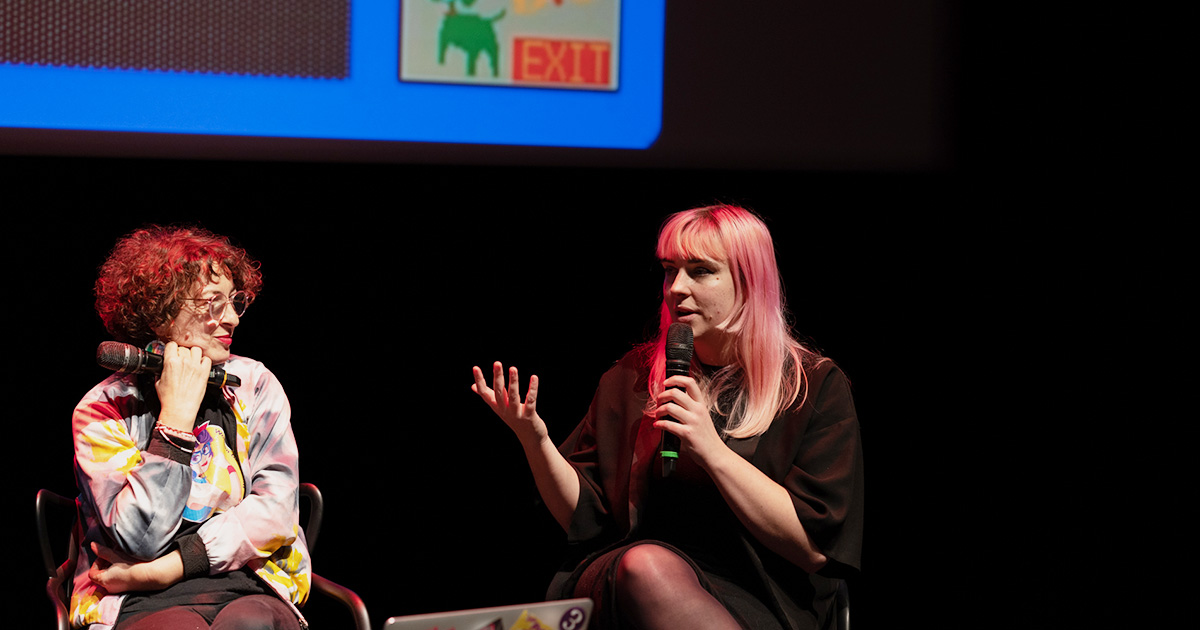
Stella Jacob
This work has led me to adopt an almost militant approach to the issue. Companies developing software and social applications tend always to look for technical solutions to remedy online toxicity problems (technosolutionism), whereas these are more societal problems.
This reaction sometimes reinforces, even legitimizes, antisocial behavior. If this is a subject that affects virtual reality as much as multiplayer video games, or even social networks, it applies all the more to VR because it offers immersive "embodied" experiences.
So I wanted to address the XR community as soon as possible to work on an ethic of the metaverse , and think together about how to make it a fair and accessible space for all.
This reflection obviously stems from my feminist approach to technology. The industry is sorely lacking in diversity. It's important and necessary to be able to bring diverse and varied points of view to the metaverse so that it serves everyone.
What are your future projects?
Fingers crossed for "Where Do Dead Malls Go?", and the outcome of the All4Games competition!
At the same time, I'm lucky enough to be working as a freelance game designer for Albyon/Atlas V . I'm very happy to have joined the team of an already multi award-winning studio specializing in virtual reality. I've been able to develop my skills, learn to work on a large scale, discover work processes and take part in ambitious projects.
Beyond that, I'd obviously like to pursue my artistic activity by working more on our relationship with the digital world and GAFAM. I'd love to develop "Fanthomes" (workshops for co-creating neo-legends) in more cities, for example.
Making off of Rumelange's "Fanthomes
Can you tell us a good memory of GOBELINS?
I have very vivid memories of the orals. We'd spent most of the year under lock and key, and it was great to be back in the classroom.
When we presented our "Where Do Dead Malls Go? project, the whole class started dancing during the trailer. It was great to see all this complicity and support.
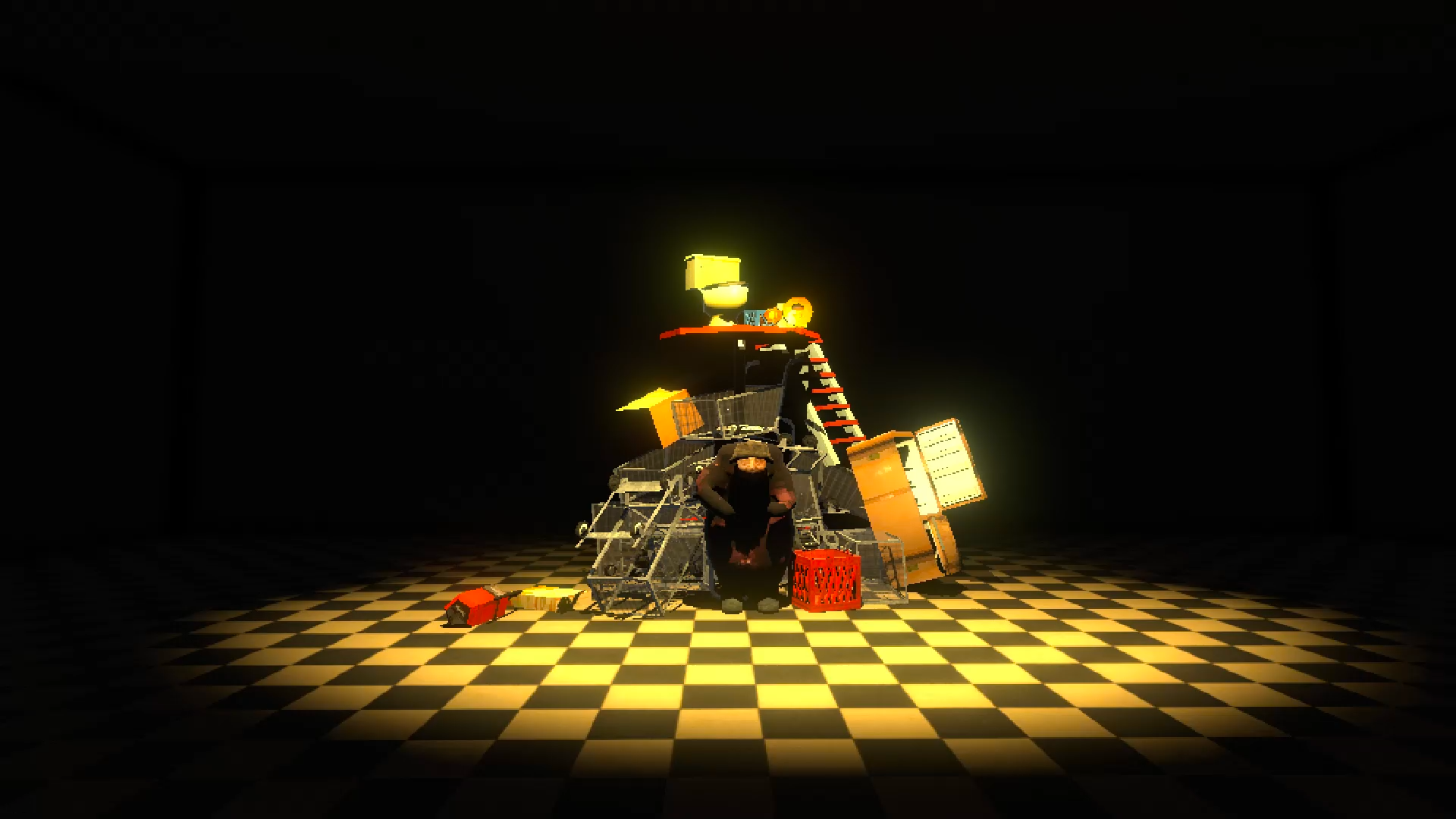
"Where Do Dead Malls Go? "
What advice would you give to a recent graduate?
I've met a lot of people who didn't dare take the plunge. Sometimes you end up giving a lot of your energy to employers who don't recognize the value of your work, whereas generally, when you leave school you have that youthful enthusiasm.
It's a pity not to put it to good use by realizing your own projects or collaborating with other students. It's this emulation that can give rise to new approaches, new graphic styles... You have to allow yourself to be daring, and not have the impression that you're lacking in skills when you leave school, when you're already capable of doing so many things.
Interview by Sophie Jean
 3
3
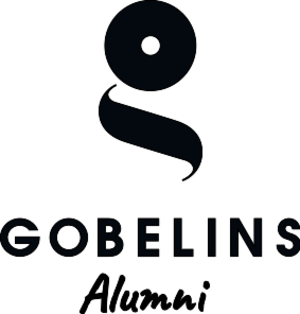







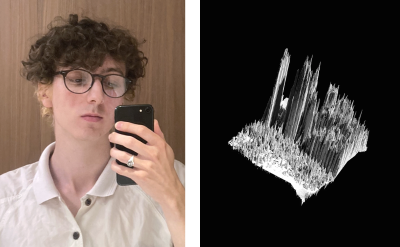
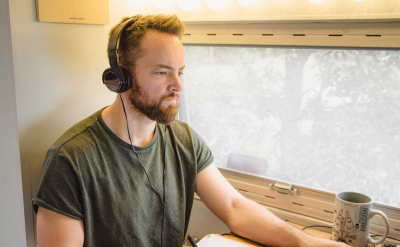
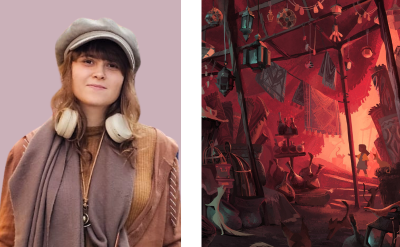
No comment
Log in to post comment. Log in.